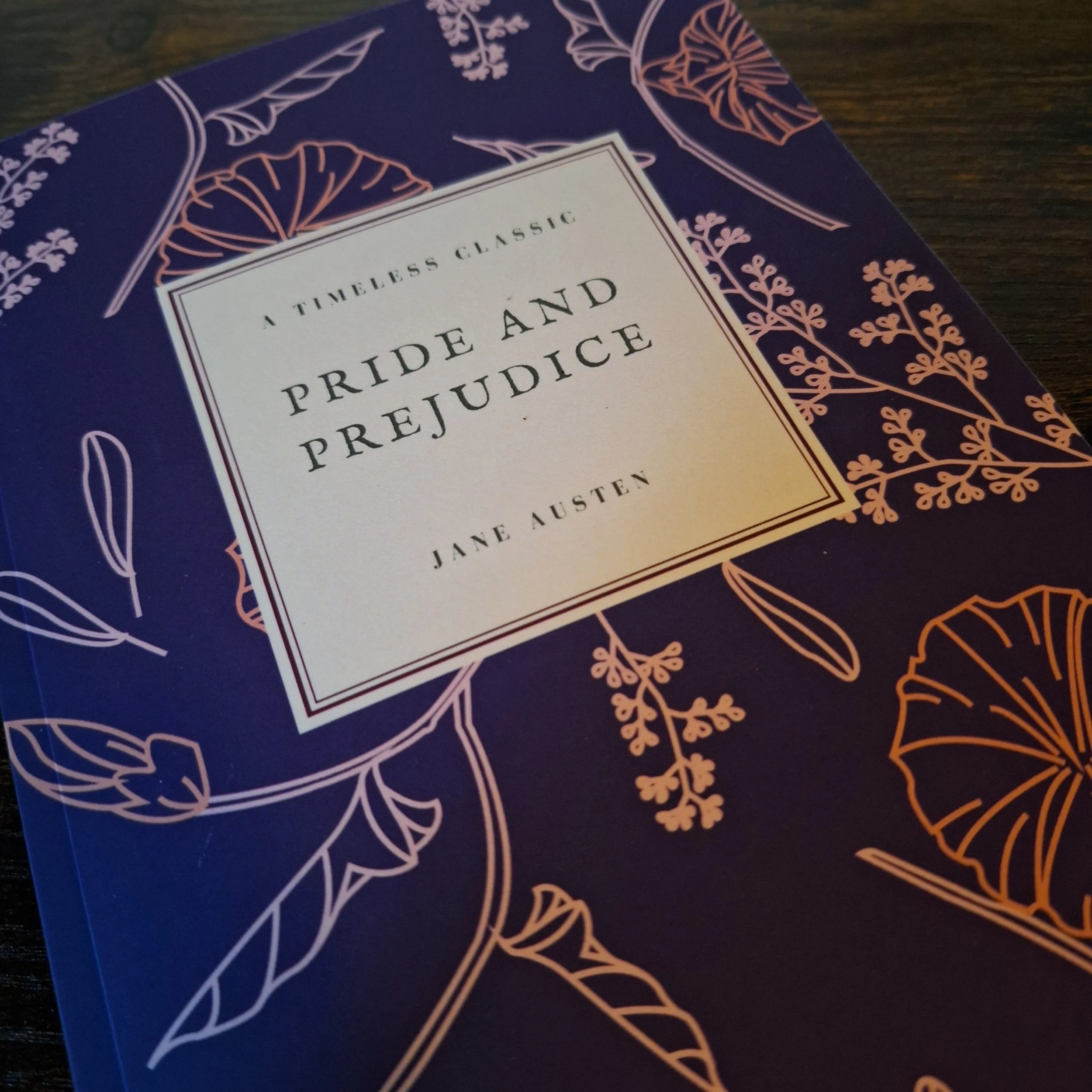Wuthering Heights / Pride and Prejudice
Challenge 4: Read a novel from any genre you haven’t read before, or rarely read.
Delving into a new genre can be a great way to discover new books and authors. In order to make this challenge a real challenge, I decided to swerve as hard as I could in the direction opposite of what I normally read. For a lifelong fan of Stephen King, J.R.R. Tolkien, and numerous similar authors, romance fiction seemed to be the best genre to break from my usual dwelling. Furthermore, choosing a couple of novels from the classical era, with all of their dense, overly verbose prose, would add another layer of difficulty to make this challenge one worth writing about.
I wanted to give myself the best chance possible to make this enjoyable, and so I read two titans of classic romance fiction, Wuthering Heights by Emily Bronte, and Pride and Prejudice by Jane Austen. For all of their legions of fans, stellar reviews, and recommendation after recommendation, they never piqued my interest, as there was always something more exciting that just had to have my attention.
And so I grit my teeth and settled in to try Wuthering Heights, a story about the romance between Catherine her step-brother Heathcliff.
Having read only a little classical fiction, there was a shock in trying to get used to the prose used by Bronte. It's far more verbose than modern dialect, where authors could shorten one of her paragraphs into a single sentence, and a page of her text into a paragraph. I didn't want my impatience to get in the way of a good story, and soldiered on.
I was rewarded with a story far more twisted and diabolical than I expected. When I think of romance I don't expect the two love stricken characters at the center of the novel to devote so much time torturing each other the way Catherine and Heathcliff do. Heathcliff may be understandably angry that she chose marrying into an easy life of wealth and privilege over him. But even when Catherine dies halfway through the book, that doesn't stop Heathcliff from devoting his life to revenge against her, her daughter Cathy, his step-brother, his step brother's son Hareton, his miserable wife Isabella and his brother-in-law Edgar.
I retrospect, I would dare to say Wuthering Heights hardly counts as a romance novel at all. Mostly it involves Heathcliff mistreating one person or another. From pummeling his step brother to throwing a knife at Isabella, to kidnapping Cathy until she agrees to marry his ailing son Linton which gives him control over both estates when Linton and Edgar die. Near the end of the tale, after Heathcliff dies, there is some closure as Cathy and Hareton can grow close, finally out from under Heathcliff's tyranny. There is a bit of a ghost story unfolding as well, and the ghosts of Catherine and Heathcliff may finally have a chance to be together at peace, though Bronte only hints at this.
Next up was Pride and Prejudice, which was much more what I expected out of classic romantic literature delivered in a surprising and pleasing story.
There was the same moment of adjusting to two-hundred year old prose, but it was quicker and easier, as Austen's writing had more humor and a wittier characters.
I liked the believable story, from the initial conflict between the novel's main characters born from Mr. Darcy refusing to dance with the protagonist, Elizabeth, to their eventual reconciliation as his character is revealed to be quite the opposite of her first impression.
The characters themselves were all interesting and widely varied, from the headstrong Elizabeth to the two-faced, debt-ridden lady charmer Wickham. This was a simpler, more realistic story than Wuthering Heights, with more colorful characters, leading to great moments like when the clueless Mr. Collins convinced himself he is going to marry Elizabeth, who can't for the life of her explain to him that it just isn't going to happen. Later, the overbearing Lady de Bourgh hears of Mr. Darcy's interest in Elizabeth and travels to her home to explain to her that it is simply unacceptable that she marry him. For class difference, you see. She just wouldn't fit in with Darcy's world. Oh, and Darcy needs to marry her daughter. Again Elizabeth has to explain that who she marries or doesn't marry is her business and hers alone.
The story was simpler, but more fun and easier to read. The main conflicts arose from distinctions of class and social status, as well as those stemming from, well, pride and prejudice.
Challenge completed, I'm sure I will read more of Austen's novels in the future. It was the easier of the two to get into and enjoy, and I'm an instant fan on any author that can get me to laugh out loud. The twisted Wuthering Heights appeals to the Stephen King fan in me and makes me wish Emily Bronte had a chance to write more. I'm sure I will eventually try one or more of her sisters' novels. Regardless, I finally pushed out of my comfort zone and caught up with the rest of the world in getting to know these classics and why they withstand the test of time.
D.G. Raymond
